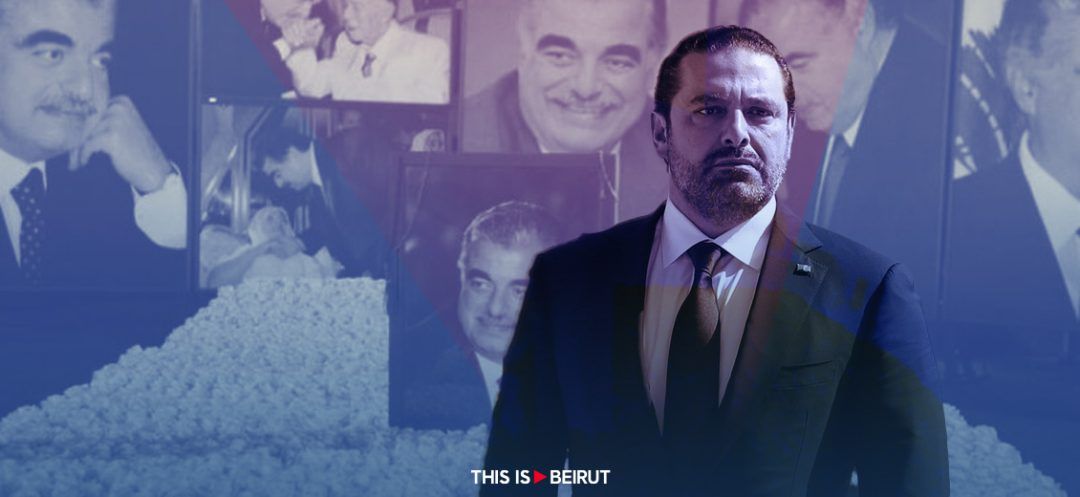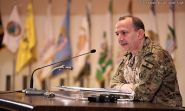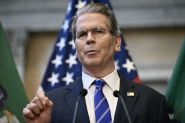
Nineteen years ago, on February 14, 2005, the assassination of former Prime Minister Rafic Hariri set the course for turmoil within the Lebanese political landscape. His untimely and tragic death sparked a series of political and security events, but it also helped propel his son and political heir, Saad, to the forefront, establishing him as the undisputed leader on a national level and within his Sunni community.
On January 24, 2022, Saad Hariri announced his decision to suspend his participation in political life, 17 years after having stepped into the arena.
Coming two years after this fateful decision, where does the Sunni leadership stand while the former Prime Minister is expected soon in Beirut?
The Birth of Rafic Hariri’s “Za’ame”
The “end” of the civil war in 1990 witnessed the emergence of the Sunni community's pre-eminence highlighted by the arrival of a controversial yet highly charismatic figure: Rafic Hariri.
“Historically, Sunnis have never had only one leader. This is due to their geographic distribution within the cities,” says Samir Jisr, former Tripoli MP and former minister of the Future Movement to This is Beirut.
However, towards the end of the war and throughout the post-Taef years (the 90s), Rafic Hariri tried to create the idea of a secular Sunni identity coupled with a strong entrepreneurial spirit. This brought about a narrative of a “new kind of politician” and altered the perception of the Sunni community, which found Hariri a unifying leader with influence on the ground. “His reputation, magnitude, and the way he worked on reconstruction in Lebanon gave him an indispensable presence,” says Jisr.
This gave rise to a new sociopolitical phenomenon: Harirism, to the point where Harirism could be identified with Sunnism. Initially, his political strategy was to distance himself from the traditional “za’im” and their patronage systems. However, he quickly realized that he would not be able to maintain control by operating within those rules. By the late 90s, the political climate and the “troika” at that time, favored by Syrian dominance, heightened sectarian tensions, leading to the strengthening of the consociational model instead of abolishing it.
This prompted Hariri to adapt to the Lebanese system of communitarianism: he took control of key institutions, such as the Maqasid, and gradually weakened other Sunni leaders. He also accumulated political capital and broadened his support base through the philanthropic activities of the Hariri Foundation.
However, during the period of Syrian hegemony in Lebanon — which was modeled after the Assad regime — dissenting voices in power were not to be tolerated. “The Future Movement was present in all regions, even multi-confessional ones, but the Syrians did not want the emergence of a Sunni force or an influential Sunni figure,” says Samir Jisr.
Rafic Hariri paid the ultimate price for this.
Saad Hariri’s “Za’ame”
Upon his father’s death in 2005, Saad Hariri inherited his father’s legacy, heightened by the emotional and cross-communal momentum generated in the country by the assassination. According to Jisr, “Leadership is born of exceptional circumstances. In Saad Hariri’s case, this leadership was magnified by his father’s assassination, when everyone rallied around him.”
Saad Hariri stayed on the same path by transforming the Future Movement into a political party (Al Mustaqbal) and using it to rally the Sunni community behind him. However, as was the case with many political figures, he failed to capitalize on the political movement of March 14th, which emerged from the wave of protests following the assassination of his father. Furthermore, with the events of May 7, 2008, culminating in the Doha agreement, Saad Hariri realized that the price of power was a compromise with Hezbollah.
Was it at this point that he started to lose popular support and the backing of Saudi Arabia?
Out of the Political Limelight
According to Antoine Andraos, a former MP and former Vice-President of the Future Movement, Saad Hariri withdrew from political life due to pressure from Saudi Arabia, but also because of the Thawra. “He understood the message sent by the protesters and deemed it appropriate to step back,” stated Andraos to This is Beirut.
On January 24, 2022, a few months before the parliamentary elections, Saad Hariri announced his withdrawal from political life. According to Moustapha Allouche, a former MP and former member of the Future Movement (from which he resigned prior to the 2022 elections), “Saad Hariri withdrew because he was lacking international support as well as Saudi Arabia's," he stated to This is Beirut.
In a brief statement explaining the reasons behind his decision, Saad Hariri mentioned the compromises he had to make “at his own expense” (referring to the Doha agreement and the election of Michel Aoun). He stated, “I have lost my personal fortune and some friends abroad” and “there are no positive opportunities for Lebanon in the shadow of Iranian influence.” It is also important not to forget that Saad Hariri was politically targeted by Saudi Arabia. On November 4, 2017, during a visit to Riyadh, he was forced to read a letter of “resignation” and was only released after the intervention of French President Emmanuel Macron.
For many people in “the Sunni scene” (and others), Saad Hariri was a victim of injustice. According to Samir Jisr, “all his allies stabbed him in the back, even those on the inside (from within his own camp). One day the truth will be revealed.”
No One Has Filled the Void
Over the past two years, no political leader of Saad Hariri’s caliber has emerged on the Sunni scene.
“No Sunni has been able to replace him because of his presence and international connections. Locally, there is no personality of his stature, neither Achraf Rifi nor Fouad Makhzoumi,” says Antoine Andraos. He goes on to say, “The Saudi Crown Prince could have done it if he wanted to, but he did not attempt to promote another Sunni in Lebanon.”
Even Moustapha Allouche states that “the Sunnis chose their representatives during the elections, but there is no sectarian leader like Saad Hariri. Some are eager for his return to compensate.”
In the words of Samir Jisr, there is no personality with the charisma of Saad Hariri, which is essential to enjoying leader status. “S. Hariri is still a Za'im. Today, there is great compassion for him. People feel that there is a void that no one has been able to fill. Moreover, other political parties sense new dangers ahead and are favorable to his return, even the turncoats. The war in Gaza has disrupted everything. In Lebanon, a country of freedoms where people can express themselves freely, there is great empathy for the Palestinian cause, which, in the context of the Sunni void, can lead us where we don’t want to go. This is why many parties want Saad Hariri back because he is bold in decision-making.”
Here to Stay?
“Saad Hariri did not suspend his political activity on a whim. There are reasons behind his decision and he will clarify everything himself. Let’s not forget that he announced the suspension of his political work, not his withdrawal from the arena. During his meetings with his party, it was clear that he would be back in three or four years while being certain that there would be no developments in the country during these past two years,” asserts Samir Jisr. “When he left, he wanted neither himself nor his party to be involved in politics. Many followed his instructions, and others ran in the elections.”
As per Antoine Andraos, Saad Hariri will be in Lebanon for the February 14th commemoration, but no one knows what his plans are. “It’s an attempt, a positive effort to show the world that he is still active in Lebanon’s political scene and that Hezbollah cannot control the Sunni street through certain MPs or regions.”
“There is a lot of hope related to Saad Hariri’s return. However, based on facts, hopes will remain hopes because the conditions that led him to withdraw are still relevant and because there is an international project for Lebanon,” observes Moustapha Allouche.
Politics, the Magic Formula
For Samir Jisr, the specificity of the Future Movement, was its presence throughout Lebanon with no other Sunni party being able to fill the void once it was no longer in the play. “It is not easy to fill this void if one is not prepared. It is not impossible, but there is a price to pay, not only financially but at all levels,” he says.
Engaging in politics is much more complex and vital than a simple financial investment. One must be ready to sacrifice personal and financial interests, get involved, and let go of excessive ego.
Since Saad Hariri’s departure, the important figures of the Sunni community have not been able to stem the feeling of frustration among their popular base or help them feel more relevant. Furthermore, Hezbollah is a master at accentuating divisions and filling in gaps.
Lebanon finds itself caught in a tale like Goldilocks and her bowl of porridge: the Sunnis have no leader (too cold), the Christians have too many and are divided (too hot). One player remains in the game (at the right temperature), and that is Hezbollah.
Read more




Comments